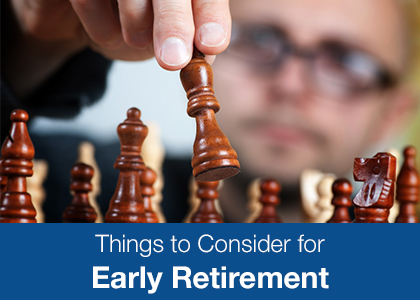In conducting recent interviews with pre-retirees, we found that there are 4 primary concerns that were pervasive among them. These were career employees of a major corporation, between the ages 57 – 63, and it was interesting to find that they all had similar concerns. Here is what we found!
The #1 concern was the cost of health insurance.
Because Medicare does not start until age 65, they were all concerned about bridging the gap between their current age and age 65 when Medicare kicks in. This was a concern not only for themselves, but also for the spouse, so it’s important for anyone considering retirement to factor in the cost of health insurance prior to age 65. All the better if your company has a benefit to help bridge that gap, but the bottom line is, health insurance premiums are expensive, and you need to have a plan for covering those added costs; especially if your current employer has been subsidizing premiums while you are employed.
The # 2 concern was “Do I have enough to retire”?, or “Am I going to be OK if I retire”?
The answer to those questions has to do with how much income you need to live comfortably in retirement, and be able to do the things you want to do without having to worry whether you “have enough”. Part of that is dependent on what other income sources you have available when you retire, such as:
- A traditional pension plan that will pay you a monthly benefit when you retire, and reviewing that within the context of any survivorship options related to that pension. Making wise decisions on how you go about choosing the best pension option for you and your family is important to having a retirement plan that works.
- The amount of Social Security you are eligible for, and at what age makes the most sense for you and your family to start drawing. Part of this may also depend on whether you are married, and if your spouse has their own Social Security benefits, or if they will be drawing on half of yours. There are ways to maximize your Social Security benefit.
- Any other sources of income such as working part time, rental income from rental properties, trust income from inheritance, or even working for another company when you retire.
The # 3 concern is longevity.
How long do I have to make sure my money is going to last”? Many people underestimate life expectancy, and although 25 years ago, life insurance companies estimated life expectancy at 83 years, people are now living longer – into their late 80’s and 90’s. Underestimating longevity plays havoc with retirement planning and finances, and many financial planners now recommend that you develop retirement estimates to live to age 90 or 95.
- Another factor that plays into this is underestimating expenses in retirement. Don’t think you’ll be spending a lot less money when you retire – forget all the old rules. Today, many retirees are healthy, they travel more, and take on more hobbies. Spending might slow in later years, but not at first. If you don’t have a handle on current cash flow and expenses, you can’t get started on retirement planning.
The # 4 concern is “What should I do with all of my other retirement accounts”?
This is the other part of the answer to Concern #2, which was “Do I have enough?” With 401ks, 403bs, IRAs, Roth IRAs, and other retirement plans, many people have substantial assets tucked away in these types of retirement savings accounts. They can be systematically withdrawn, invested for income or growth, rolled over to consolidate into other retirement accounts, used to purchase annuities, or utilized in other ways.
Your age and the type of retirement account you have may affect the role it plays in your retirement plan and whether you choose to take income now or later. Of course, the IRS requires that you start drawing what is known as RMD’s (Required Minimum Distributions) the year you turn 70 ½ years old, but what to do in the meantime should be based on your personal retirement objectives.
Ultimately, the goal of retirement planning, and determining whether taking an early retirement is right for you can be complex, and should involve putting all of these issues and concerns into a consolidated, comprehensive plan that looks at all of your retirement needs and income sources (pensions, Social Security, income needs, “want to’s” {travel, giving, helping kids and grandkids, etc.}, health insurance costs, longevity, various retirement savings accounts, etc.). On top of that, you should also think through what you are going to do in retirement and whether or not you will be fulfilled not working, or no longer having a career. All of these should be factored into a plan tailored for your specific lifestyle and financial goals.
This material was prepared by Carson Coaching & Hal Otey Financial. Carson Group Coaching is not affiliated with the named broker/dealer.
Securities offered through Cetera Advisor Networks LLC, Member FINRA/SIPC. Investment advisory services offered through CWM, LLC, an SEC Registered Investment Advisor. Cetera Advisor Networks LLC is under separate ownership from any other named entity.


